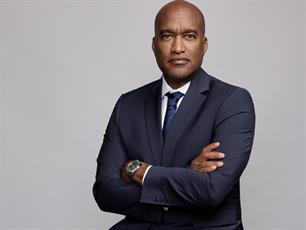Holmes Report 08 Jun 2011 // 11:00PM GMT
Ketchum Pleon senior partner and president David Gallagher is the ThinkTank EMEA commentator until the summer, responding to provocative news issues on a weekly basis.
One of the buzzier topics in PR thought-leadership circles these days is ‘content’ and how it relates to what we have traditionally done in the past or would like to do in the future.
For the most part, there has been more talk than action, with a few notable exceptions: global consultancy Weber recently launched a content development division called Creation, and my own employer (Ketchum) has had success with an open-sourced content and ideation platform called Mindfire. Perhaps more significantly, leading marketers like Andre Manning at Philips have put content at the heart of their sales and marketing strategies, as he discussed at the recent Think Tank Live session in Prague last month.
The hesitance of many PR practitioners to jump into the content game is understandable. It’s one thing to stake a claim, and something else altogether to roll up your sleeves and start digging for gold. It’s not clear where to find it, how to turn it into money if you get your hands on some, or even what your legal rights and responsibilities are with regard to its creation, distribution or consumption.
This may be about to change. The World Economic Forum – the people who hold the annual summit in Davos every winter – has launched a new project with management consultancy Bain and Company to look at precisely these issues on a global scale.
The aptly named Future of Content project aims to analyze the current and emerging trends that are redefining content creation and consumption, stimulate across-industry discussion and share “lessons learned” among relevant stakeholders. The project’s ultimate objectives are to create a shared understanding of what’s going on now and what’s likely to happen in the near future so that everyone with an interest in content can make better and more sustainable business decisions.
In particular the initiative examines content questions in three areas: creation; aggregation / distribution; and consumption. How is the content creation landscape likely to evolve? How can businesses facilitate content “discovery”? What are the regulatory frameworks? What kinds of content are likely to be computerized? How can media companies transform the “old” business models while ensuring to continue to give the world “quality content”? How should policymakers and regulators adapt to the changing landscape in content creation? And can public policy be an effective lever to catalyze development of a media “creative class”?
PR has a voice in this discussion. Steve Rubel from Edelman and I are serving on the project’s steering committee, along with representatives from the media, entertainment, social networking, software, marketing and telecommunications industries, as well as regulators from the US and Europe. We would welcome your input directly, and you’re invited to follow the Forum’s twitter feed on the project (@WEF_Content) to stay up to date and offer contributions as white papers, regional workshops and other activities are developed.
And as always, your comments are welcome right here!


































.jpg)





.tmb-135x100.jpg)











